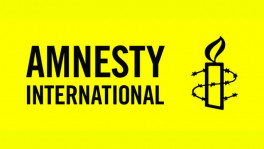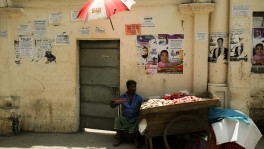Economists Discuss Covid-19 Crisis: How will the businessmen survive?

The government expects that the companies will become more transparent in doing business. When a business tries to become transparent, they fall victim to extra harassment. Out of fear, they do not expose themselves. But the economy cannot sustain this pressure for a long time. So the companies should be transparent to some extent. At the same time, automation should be introduced as much as possible so that the amount of system leakages gets reduced. Already, BIDA has worked on this with the IFC. They have removed many barriers while opening new companies.
Inam Ahmed: Welcome to the video conference of The Business Standard. Today we have Rupali Haque Chowdhury, the managing director of Berger, Sayed Mahbubur Rahman, CEO of Mutual Trust Bank, Monzur Hossain, senior research fellow of BIDS.
Dr Zahid Hussain, former lead economist of the World Bank, will moderate this discussion session.
The topic of our discussion today is business sustainability, how businesses will survive amid the impact of coronavirus in our economy, and what will be our strategy.
Zahid Hussain: Thanks to Inam and to The Business Standard. Thanks to you all who are present at today's discussion. Today we will discuss about business.
I want to focus on three points – one, Keeping the businesses afloat amid the pandemic, two, how you are observing the design and implementation of the government stimulus packages for business and three, how the next budget is going to do to keep the businesses alive and what is the plan to facilitate the businesses when the economy recovers?
I want to divide the discussion in these three parts. So, at first, keeping the businesses afloat presupposes that it is somehow sinking. I want to start with Rupali Haque.
Rupali, you are involved in the business of paint. You have relations with other businesses too, such as the housing sector. So what do you think about the impact of Covid-19 in business?
Rupali Haque: I want to start with the paint sector. I am also the president of Paint Manufactures Association.
This quarter of the current financial year, which started from April, has been a disaster for big companies like us. We are observing the present crisis quarter-wise because we are not being able to perceive it in a long term.
In April, the sale in the paint sector was almost zero. So everyone is assuming how this quarter will end. We have continued to bear our fixed costs which are absolutely necessary. We are not thinking of eliminating any employees, rather we have given normal increment to all of them.
As a big company we can afford that until the situation comes to a sustainable position. The other variable costs are suspended, including the marketing costs or brand building.
Then we are thinking what our growth will be in the time of the new normal. Whether we can bring in any new product portfolio or how to improve the confidence of our consumers? We are thinking how to make new strategy for the business with sanitation in mind.
Apart from Berger and few other companies, the rest of the companies – around 35 – have nothing called retained earnings. They are in a huge trouble. When they open their business, they will not be able to pay the salaries of their employees, and there will be a shortage of working capital.
Big companies' access to the loans is good, but it is not like that for the small companies. The central bank has a plan to take responsibility of 80 percent of the default loans of the small and medium enterprises.
So, the main focus should be these small and medium enterprises which consists the most number of employees. From our construction sector to boutique houses to small restaurants etc. are the major contributors in terms of employment. The sooner we will be able to provide working capital loans and employment loans, the sooner our economy will come to some kind of vibration.
So I think, to keep the businesses afloat it is very important to provide loans to the small companies. And we have to find a way to reach them because the small and medium companies have no proper accounts, they also evade tax.
All the loans will be provided through the banking sector, there is no other way, and whether the NGO will play any role here could also be considered.
Zahid Hussain: What is the condition of other companies in your sector? You said you are providing fixed costs and other costs from the retained earnings. How are the other companies facing the challenges?
Rupali Haque: Big companies here hold a lion's share of the market. But the liquidity or cash flow situation is not good. I do not know about the retain earnings of them. If they have a problem of cash flow they will suffer.
As a result they will not be able to give salaries to their employees, import raw material, etc. Around 80 percent of the raw material in this sector comes from abroad. And the paint market is very much credit driven. We have to inject fresh money into the system.
Zahid Hussain: Thank you Rupali. Now I will go to Mahbubur Rahman. How are you reading the current scenario? What your clients in the banking sector, who are involved in businesses, are saying about their crisis that has been going on from March to June?
Mahbubur Rahman: For the last few years, the credit growth has been declining for different reasons. We have seen that for the last two years the banking sector is in crisis.
The number of non-performing loans is increasing. Officially it is 10 percent and may be 10 percent more. Our equity is like 7-8 percent, which should be 14-15 percent. Only a few of the banks are performing well.
Rupali Haque said about the working capital of the companies. You see, when the government declared stimulus packages, all the companies of the RMG sector applied for that. The sector is here in Bangladesh from the eighties. Some of them have millions of dollars of export business.
We were experiencing a slowdown of the economy though the GDP was growing. But the banking industry was not growing. Around 85 percent of our economic activities are in the banking sector.
Everything is dependent on banks. After the government declaration of general shutdown, every activity of the banks was stopped. What remained open was only the transactional banking.
Before opening an LC, a businessman thinks that will he be able to sell that product which he is buying. And those who are export-oriented experienced that the world market is closed. So there was almost no demand for banking services during that period.
Only in the infrastructural projects of the government was open and there were releases of funds in that sector.
There was also supply chain disruption. You know the main driving forces of our economy are export, agriculture and remittance. We see that agriculture is impacted at a significant level.
The farmers take seeds and pesticides on due and pay the money back after the harvest. Now they could not get a fair price for their crops in this season. We see that they sold their products in their local area at a very low price, which would get a higher price in Dhaka.
As a result, we see that many farmers dumped their milk in the streets because of this crisis. Not only in Bangladesh, but also in America we see a disruption in the supply chain.
Another fact is that one third of our population live on daily wage. But they lost their earnings due to the Covid-19. Local demand for products was also reduced. So, the banking sector is passing a very tough time. You see that the credit growth has come down to only eight percent. I have never seen such a low credit growth in my 30 years of experience.
So, we see that many companies were reducing their number of employees, or going through a salary cut. But I hope the coming days will not be so bad.
We see that the government has already given 19 stimulus of around Tk1.1 trillion. And this has been implemented only in the garment sector and will be implemented in the other sectors soon. There are also many issues here. If a bank wants to give money, it needs to visit the factory physically.
Monzur Hossain: I have a question here. How is the credit growth of consumer loan? And the eight percent credit growth that you mentioned – was it over the last quarter or in the last month?
Mahbubur Rahman: Basically there is no consumer loan credit growth. Frankly speaking, it has almost stopped. And the eight percent credit growth was up to March. Now we have a new regimentation that the interest must be nine percent from April.
So there is no motivation for a banker for personal loan disbursement because I have to give the loan at 9 percent interest rate, will provide five percent and also cost of fund will be 7.5 percent. We are still giving home loans and vehicle loans. Because you know the tourism or hotel business or the real estate [sector] were the first ones to be impacted.
Inam Ahmed: Did the economy started moving after the withdrawal of the lockdown? What is your opinion?
Mahbubur Rahman: It is too early for making a comment. Now we are doing the works of stimulus packages. The customers are coming after opening their factories. Many of them could not pay salaries to their employees. So they are coming for their money.
Zahid Hussain: Now I will go to Dr Manzur. You are working as a researcher in the field level. Now, what do you think about the crisis that businessmen are facing?
Monzur Hossain: Our assessment is almost the same as what was said by Rupali Haque and Mahbubur Rahman. We knew that in the present situation businesses will be the worst hit.
But the question is how long in the future we have to go through this situation? That will determine how businesses will ultimately be affected?
If the situation continues like this with partial opening then everything will go to a certain way, but if the situation worsens and the government has to take strict decision again, then it will be very hard for businesses. The global scenario is also linked with this, especially with exports and imports.
If the demand in a global market does not grow, then the export sector will not flourish. And as they said, the big enterprises will probably survive but the small and medium enterprises will be hit hard.
The employees of the SME sector are in big trouble because of job cuts. In this sector, generally they do not maintain formal employment procedures. So we think that when the crisis began, the first blow was on the employees of this sector.
Many of them are without any salary or have lost their jobs. That is why we emphasized that the government should provide a support for them to continue their job or their salary.
The third thing is that how the production process can be continued? The initial plan was we will observe the employment situation in the first three months, and if we could flatten the curve by this time then we will go to enterprise support.
But unfortunately that did not happen and we are facing a high risk. I do not know the way of the recovery now. I think we have to see the Covid-19 containment policy and the recovery policy of businesses in the same line. If we can take the Covid-19 policy quickly then we will be able to open businesses.
There are some consumer related businesses which could be run if we can implement e-commerce properly. Some service sector related businesses could also be run. A certain portion of businesses could be continued with some technical innovation, internal restructuring and rearrangements.
By this we could possibly open a portion of the businesses, but to run it in a large scale we will have to wait. If we can flatten the virus curve then businesses could move forward.
Right now, every business enterprises should have their own plan on in what extent they will be able to continue their businesses. I personally do not think that with all this, the businesses could be afloat that much. Only a minimum rescue could be possible.
I think around eight million to one crore people are involved here who are very vulnerable and involved with the production process. And in a study of BIDS, we saw that their salary is around six to eight thousand taka.
Inam Ahmed: I have a question to Mahbub bhai and Rupali di. Are you seeing any opportunities from Covid? Are there new types of business models arising from this crisis? Are systems like home office reducing office costs?
Mahbubur Rahman: The traditional model was branch banking which focuses on increasing customer touch point etc. But the situation has changed. We are now thinking about virtual banking. Like many roles, it could be played from home like the people who works in the IT section.
I had a virtual meeting with my colleagues before Eid and found that some of them are very happy working from home, especially the women. They said now they have no tension of returning home at the evening and their productivity has increased.
The challenge is now for the supervisors to collect the job in due time. Connectivity is also very important. I can see many opportunities here. Around one third of our employees can work from home. And these roles can be given to the women employees.
Rupali Haque: We are not thinking of complete work from home right now, as you have an agreement when you rent a place for a certain period of time. But we are thinking about providing our clients e-commerce services.
They have to come to our showrooms to see our products. But now we are thinking about how to provide this service online. A number of our clients are elderly people who are not so comfortable with technology like the younger generation.
So bringing them online is a challenge for us. I can put some employees of the corporate office in work from home, but how that will impact our marketing, our supply chain – I do not see that we have come to that stage.
It cannot be done automatically without infrastructural changes. So I think that of course we will think differently due to the Covid, like how to build consumer confidence, how to sanitise the homes before painting.
But you know there are many small companies in this sector and they have relations with the dealers, with the painters… so I think there are a number of challenges here.
Zahid Hussain: Now I want to go back to the policy response. At first, we want to discuss the responses that we have seen so far, and then we will discuss the matter of future needs on the perspective of the budget.
Among the financial packages, some have been provided like subsidies – five percent for the small businesses and 8.5 percent for the big ones. The central bank has also mentioned of providing liquidity support through refinancing.
I want to start with Mahbubur Rahman. The packages that have been given – specially the bank related packages – what is the progress of implementation so far? And if there is any sluggishness here, I think it has, then where are the obstacles?
I think at the beginning there were some obscurity about the packages and the central bank had to issue many circulars for that.
There were also some hesitations on decision making and how the whole process will be implemented, who will get the money, how they will be selected, how the whole process will be maintained from the receiver level to the central bank, how the data will be collected – how do you see these problems?
You are working as a banker at the middle point of this so you are observing both sides.
Mahbubur Rahman: You have said it correctly that around 70-80 percent of the packages will be provided by the banks. So banks are directly involved here. But the problem is – though the support in the RMG sector has come from the budget, the risk is for the banks.
After 18 months, the central bank will take the money from us whether we get back the money or not. The refinancing was not considered initially. When the fact of liquidity came forward that the CRR has been released 10 percent, some concession has been given in the ADR, which increased some flexibilities for banks.
This is an unprecedented scenario which was beyond our thought. The situation is being changed worldwide and the prescriptions too. Initially it was thought that the virus infection rate will be at peak on May, but it did not happen.
Now we are looking at June. But it is not certain whether it will happen or not. So the government could not implement the initial plan.
The Bangladesh Bank also came with many plans initially but that changed them later. Take the fact of readymade garments which was changed several times. At last the labour ministry said that if there is an attendance of below 60 percent then they will be given a certain amount of percentage.
Now the labourers could say that you did not ask me to come, if you had asked me I would have come. So, there were issues and we went through trials and errors.
If we look at the total funding scenario in Bangladesh now, 70-75 percent goes for the working capital finance. Now, we said that we can give only 30 percent. It is still unclear how we should disburse it.
Although the Bangladesh Bank has suspended the ICRR (Internal Credit Risk Rating) for the time being, the risk falls completely on us when we, as a bank, lend the money. So, there is an issue whether the government is able to share the risk especially in case of loans to micro, small and medium enterprises.
Depending on the company type, it can be 50 percent or 30 percent or even 20 percent. According to a Bangladesh Bank survey, SME sector accounts for 14-15 percent of NPL (non-performing loans).
Most of them are single revenue scheme driven. Many of them have already closed down or are going to shut, and we do not know if they will be able to come back. And another survey says that 60 percent of the SME will go shuttered.
When I, as a bank, lend you money, you will have to pay it back too. The Bangladesh Bank, in the meantime, asked us to suspend charging interest for two months (April and May) on borrowers.
As a result, we had to cancel around Tk15,000-16,000 crore immediately because of this order. But look, we had to pay interest to the depositors, who are our sole source of income, in these two months. Can you imagine how much havoc there will be in the market or to what extent our public credibility will decline if a bank fails to give interest to depositors?
Now, as the interest rate in both public and private banks has become almost the same, many will go to the public banks. Many of our clients are taking off money from private banks to invest in government instruments such as treasury bills, bonds etc. which are giving 7.4-7.5 percent interest.
So, I think the government should address all these issues. Or else, banks will be lending the money only to good companies like Berger, because of the risk factor. We are now expecting of a certain amount of NPL as we have been instructed not to classify the borrowers on their failure of repaying instalments up to June.
At the same time, my [NUMEROR (42.56)] is increasing as there are delayed payments as well as I am bound to disburse the money. Also, I see depositors are withdrawing money. So in case of local currency, the advance deposit ratio will remain under stress.
In foreign currency perspective, a big pressure is also looming. Even, foreign loans have already become more expensive. As remittance and exports have also dipped, we, as a bank, are already facing a shortfall in foreign currency.
The Bangladesh Bank has already issued letters as several banks have delayed in foreign currency settlements. As there are no export proceeds, we are also delaying to pay against the bills we accepted in local banks. Although the government has widened the window of the Export Development Fund, banks have to pay the suppliers beforehand even by taking forced loans.
So, we are afraid that banks are going to have a more stressed time in the coming days.
Dr Monzur: I want to ask a small question to Dr Mahbub. Is there any guideline or deadline as to when the Tk20,000 crore stimulus package for the MSME sector should be disbursed? Do you have any binding that you must spend the money?
Syed Mahbub: The support will be given for one year. More importantly, there is already an imposition from the Bangladesh Bank that at least 25 percent of the total lending we do in a year must be SME loans.
Dr Monzur: One more small question, please. What is the present scenario of the profitability of the banking sector, especially of your bank?
Syed Mahbub: Only a year ago, banks' operating profit was Tk25,000 crore while there is an assumption that it will be roughly Tk15,000-16,000 crore this year, considering the fact that our import-export and remittance volumes will remain the same as the last year's.
But as these have already been down significantly, it I difficult to say what the operating profit will be.
Dr Zahid: Rupali, I have a question for you. How do you see the stimulus packages declared for your sector?
Is only financial assistance enough to sustain the current crisis? Or the assistance in issues like regulatory adjustments and ease of doing business is more important? Or reducing the comorbidities (pre-existing conditions) so that businesses do not break down when affected?
Rupali Haque: In the policymaking level, the new laws NBR formulates in ease of doing business change every year. As a result, complexity of business lingers in our case as always. In case of remittance, there is a popular belief that foreign companies only take away dividends. But actually they do not take away 100 percent.
Most of the companies invest in this country, taking dividends is a recognised business policy around the world. They are taking it after making declarations. Even, publicly listed companies pay a part to their shareholders.
However, both the parties – policymakers and foreign companies – have problems. When policymakers see that some companies are dodging tax and VAT by taking various rebates, they then try to collect the money from other sectors by imposing new laws.
As a result, the tax net does not expand but those who are already paying taxes become more burdened. It ultimately results in weakening the law-abiding companies' competitiveness in the international market.
The government expects that the companies will become more transparent in doing business. When businesses try to become transparent, they fall victim to extra harassment. Out of fear, they do not expose themselves.
But the economy cannot sustain this pressure for a long time. So the companies should be transparent to some extent. At the same time, automation should be introduced as much as possible so that the amount of system leakages gets reduced.
Already, BIDA has worked on this with the IFC. They have removed many barriers while opening new companies. But the automation is taking time to a good extent.
However, because of quick changes in the tax planning, the credibility about the fiscal policies and their duration face a question. Consequently, no new company feels interest in getting publicly listed even if the government wants them to become more transparent.
Now, I have a query to Syed Mahbub. How many of our small companies have access to the banking system as the stimulus package declared for the SME sector has been said to go through banks? If the government shares some risks, will the credit disbursement increase?
Syed Mahbub: Yes, we scrutinise customers' track records before lending them money. Sometimes, we stand by a particular customer even after his business has shut down.
At the present situation, the internal market has not opened yet. If the government or the Bangladesh Bank comes forward to share some risks or want to do the classification system differently for this specific industry (banking), bankers will be encouraged.
Rupali Haque: I want to tell Syed Mahbub that, in our case, we have increased, for example, the credit periods for those customers who could not pay us at this present moment. I think bankers should also do that.
Syed Mahbub: The problem is that banks are big in numbers and customers have options. So, they may make trouble with me thinking that "If I create troubles with the MTBL today, I can take money from other banks tomorrow."
So, we are focusing on distributor finance and supplier finance.
Rupali Haque: There comes a question of some sort of bailout, doesn't it? If all companies become stressed due to a severe liquidity crunch, shouldn't they be relieved of it by assisting them financially?
Syed Mahbub: True. There is a year-wise target for us for the CMSME sector. We have to disburse Tk300 crore per year to the sector.
Dr Monzur: How do the economists see the stimulus package? I agree with Syed Mahbub that the stimulus package is not implantable to a good extent, in a sense that bigger companies can easily take loans from the banking system but smaller ones do not have that much access.
Rupali Haque was asking what percentage of the MSME has banking access. As per my study, if I consider only small and medium industries, only 38 percent have the access to finance. But including the micro ones, the percentage is below 30 percent.
So, you have to come to an innovative strategy if you want to reach the stimulus package to them. At the present system, only 30-35 percent SMEs will get the financial support while others will not. So, a big disaster is likely arriving on the business sector.
Another point, Dr Zahid might ask me about our expectations from the upcoming budget. At the present stage, I think tax cut is one of the most recommended processes. Firms can increase savings with the money to be able to invest in the future when the situation will get better.
So, the income tax should be brought down to 30 percent while income tax slab should go up to Tk400,000 – if I mention specifically.
I have a proposal for the stimulus package. Those SMEs who have outstanding bank loans should be waived of the interest for three months. It should also apply to the new SMEs which will come under the stimulus package.
The government should give the money to banks in subsidy. Besides, those who are trying to get the access to bank finance should also be given moratorium to their principal payment for at least one year.
I think the next budget should focus on two factors – one big amount for expenditure in the health sector and the other amount for the economic recovery.
Inam Ahmed: Syed Mahbub and Rupali Haque, I want to learn about what you expect from the next budget.
Syed Mahbub: We see that our income levels will definitely be impacted. We have a very interesting thing here that 10 percent tax applies to those who have a TIN but those who does not have one, have to pay 15 percent tax.
Many do not opt for a TIN because, if they have one, they are harassed by tax officer while realising the tax money. So I think tax deducted at source should be minimised, which will increase people's disposable amounts causing a boost in the internal economic demand.
We can also look at TCA (Transaction Cost Analysis) and think of bringing it down. Yes, a question may arise that the government needs revenue to operate. But if we do not do all these immediately, business turnovers will also not increase.
So, the government will not get tax, VAT too.
Another thing is taking care of the back loss. Many companies may incur losses due to the Covid-19. If we follow the normal tax policy, there will be a deep problem. So, we should allow companies to carry back losses.
There should be a scope for firms to pay tax in instalments. I also think that the tax on building up IT infrastructure and IT equipment should be tax free so that firms can invest more.
Rupali Haque: We want to see [1:12:44 – 1:12:59]. At the same time, we have been talking about the income tax rate for a long time and the other issue is the rebating the minimum tax for the companies, because they are taking losses now.
And the government should stop the system leakages. Also, a public spending monitoring should be conducted in the health sector. The government should be much strong during expenditure.
Dr Zahid: Currently, we hear that many investors are moving back to shift business in India and Cambodia. The question is if Bangladesh can take the opportunity. How do you see the issue?
Rupali Haque: Beza (Bangladesh Economic Zones Authority) should be up and running in this case. We should ready our physical infrastructure as well as add pace to policy infrastructure. We see an extreme nationalism works among us regarding foreign investments, which ultimately keeps the FDI at bay. So, we should change our mind-set.
Syed Mahbub: Actually, how much has our industry improved? Not significantly. Look at Nepal's infrastructure and compare it to ours. They are doing well in the ease of doing business. Many American companies have shifted to Indonesia, a predominantly Muslim country.
What have we done actually? Look, we have Bepza (Bangladesh Export Processing Zones Authority) and Beza. Why should we have two different institutions? Both the organisations have separate upper head counts, separate policies and even separate costs.
We are talking about cost-cutting during the Covid-19 pandemic and the government is asking banks to reduce salaries and other costs. I think we have to cut costs at every place.
How come if an investor sees that he has to move to different places to register lands? As a country, we have not been able to exemplify anything good, seeing which any one will be interested to come here.
We often talk about the blue economy. What have we done after winning the territory in the Bay of Bengal? Here, we are not doing any work coherently.
Similarly, all the packages declared by the government are monetary policy driven more or less. We have not seen anything mentionable in the fiscal policy level.
Dr Monzur: We could have expected new FDI had it come to our country continuously for the last few years. We have many problems in receiving FDI. Overall, we have an image problem too.
You are talking about BIDA, but the organisation still has reduced authority. We have not been able to make one stop service functional in that sense while there is another issue with the governance.
So, I am not hopeful of Bangladesh's getting a big share of foreign investment by companies which are relocating from China. Yes, an opportunity has been created for us. If our Covid-19 scenario were good or if we could handle the issue with much efficiently, we could expect more FDI.
So, I think, not only our macro and other infrastructural scenarios, but also the Covid-19 scenario is also affecting our image globally.
Dr Zahid: Syed Mahbub raised some very relevant questions about our macro policies. I want to briefly hear from you about this.
Dr Monzur: Yes, those are valid concerns. For example, the issue of giving salary to employees of the garment sector through bank accounts. But the issue of bank account verification does not fall under the purview of the banks.
That means, banks have been overburdened with some minor and additional loads. So, micro management is not the duty of the banks. A lack of coordination in the policy is causing problems for the monetary policy.
Dr Zahid, I personally want your opinion on one particular issue. The present crisis is not a demand-driven one, but a kind of supply constant crisis. Here you cannot move that far with the fiscal policy.
In that case, I think measures should be taken to prevent supply disruptions and supplying liquidity from the monetary policy point of view.
Dr Zahid: Let me give a brief reply to Dr Monzur. What I talked about monetisation was actually not based on the demand stimulus. What I proposed was, if the government wants to give cash aid to the poor and if it has financing problems, it should take loans from the Bangladesh Bank to reach it in the quickest possible time.
Dr Monzur: Yes, I agree to your point on this, because it will not impact that much on the inflation scenario.
Dr Zahid: Ok then. Thank you all for participating in this discussion.


 Keep updated, follow The Business Standard's Google news channel
Keep updated, follow The Business Standard's Google news channel
















